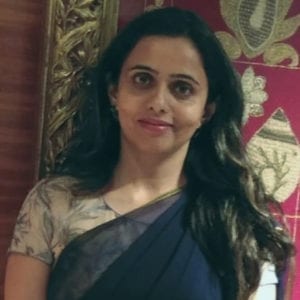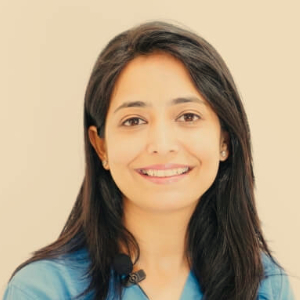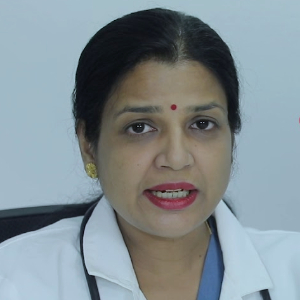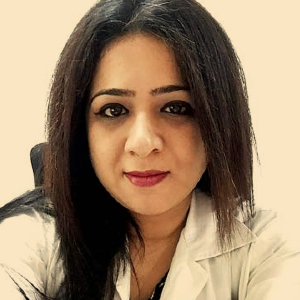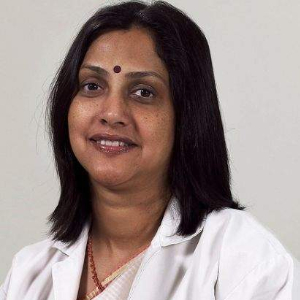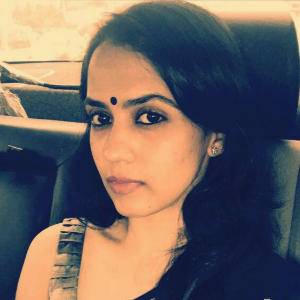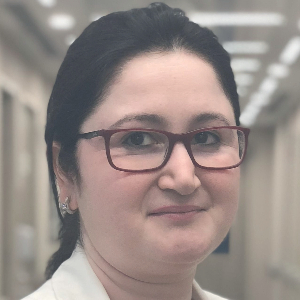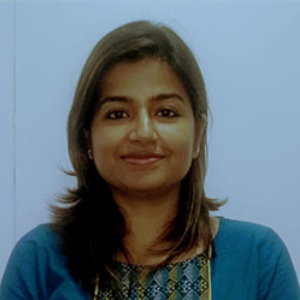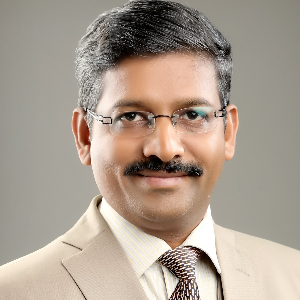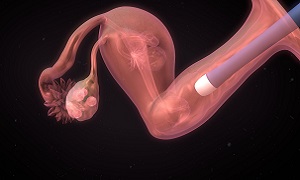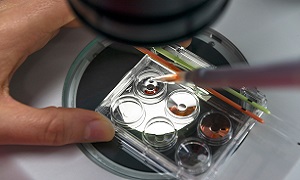Best Doctors in India for ICSI
- IVF Specialist & Gynaecologist, New Delhi, India
- Over 22 years’ experience
Profile Highlights:
- Dr. Sunita Arora is a leading infertility specialist in New Delhi who specializes in IUI, IVF, laparoscopies, hysteroscopies, and repeated IVF failure cases
- After completing her education, she joined the Department of Obstetrics and Gynecology, at Govt Medical College as a consultant. Later she moved to Mount Sinai Hospital, New York, from where she received her training in IVF and Reproductive Medicine.
- IVF Specialist & Gynaecologist, Gurugram, India
- Over 20 years’ experience
Profile Highlights:
- Dr. Meenu Handa is a gynecologist and IVF specialist, who serves as the Unit Head of the Fortis Bloom IVF Centre at Fortis Memorial Research Institute in Gurugram.
- She specializes in multiple areas which include male infertility, recurrent IVF specialties, intracytoplasmic sperm injection, and endoscopic fertility surgeries.
- IVF Specialist, Gynaecologist & Obstetrician; Mumbai, India
- Over 10 years’ experience
Profile Highlights:
- Dr. Ritu Hinduja is a renowned Infertility expert in Mumbai with experience in the management of infertility and reproductive medicine and has training in all assisted reproduction techniques (ART).
- She holds a Masters degree in Reproductive Medicine and also has a Diploma in the same field from Keil University in Germany.
- Dr. Hinduja’s primary interest lies in the management of patients with fertility issues that include low ovarian reserve and preserving fertility for cancer patients and women who want to delay childbearing by freezing eggs.
- IVF Specialist & Gynaecologist, Bengaluru, India
- Over 15 years’ experience
Profile Highlights:
- Dr. Pallavi Prasad is a well-known Gynecologist in Bengaluru specializing in infertility and IVF.
- Dr. Prasad is a specialist in all kinds of Artificial Reproductive Techniques (ART) including IVF, ICSI, IUI, and IMSI. She also provides services for vitrification and cryopreservation.
- Dr. Pallavi Prasad has also written articles and papers on her field of expertise and has published several columns on infertility and ART in renowned journals and newspapers.
- IVF Specialist & Gynaecologist, Mumbai, India
- Over 24 years’ experience
Profile Highlights:
- Dr. Sulbha Arora is a well-known Gynecologist and Obstetrician and an Infertility Specialist in Mumbai currently working with Nova IVI Fertility.
- She has 24+ years of experience in IVF and Assisted Reproductive Techniques (ART) and has helped a large number of women enjoy the happiness of motherhood.
- Her primary area of focus includes fertility medicine, fertility preservation, third-party reproduction, and ultrasound.
- IVF Specialist & Gynaecologist, Bengaluru, India
- Over 25 years’ experience
Profile Highlights:
- Dr. Aviva Pinto Rodrigues is a Consultant in Gynecology and Infertility and has an extensive experience of over 2 decades in Reproductive Medicine and holds a Diploma in the field from the University of Kiel in Germany.
- Her expertise lies in all forms of ART including IVF, IUI, ICSI, IMSI, and also finds interest in the treatment of genital tuberculosis and reproductive endocrinology.
- IVF Specialist & Gynaecologist, Mumbai, India
- Over 17 years’ experience
Profile Highlights:
- Dr. Sneha Sathe is a consultant gynecologist and infertility specialist in Mumbai and associated with Nova IVI Fertility.
- She has close to a decade of experience in the field of ART and Reproductive medicine and has achieved several successful pregnancies through IVF, IUI, ICSI, and other techniques of assisted reproduction.
- Dr. Sneha Sathe finds special interest in mild IVF and is also experienced in other aspects of gynecology such as management of PCOS, recurrent implantation failure, endometriosis, and failed IVF cycles.
- IVF Specialist & Gynaecologist, Gurugram, India
- Over 18 years' experience
Profile Highlights:
- Dr. Meenakshi Dua is a well-known gynecologist in India specializing in IVF and Infertility.
- She has an experience of 18+ years in the field of infertility treatment and has helped a large number of people with infertility issues.
- Dr. Meenakshi Dua is an expert in all kinds of Assisted Reproductive Technology and is highly trained in reproductive endocrinology, fetal Doppler, and advanced-level ultrasounds in gynecology and obstetrics.
- IVF Specialist & Gynaecologist, Kolkata, India
- Over 10 years’ experience
Profile Highlights:
- Dr. Moumita Naha is a consultant Gynecologist and Obstetrician in Kolkata.
- Dr. Naha is one of the best infertility experts in Kolkata and has assisted in achieving several successful pregnancies in women with various fertility issues.
- She is an expert in IVF, IUI, ICSI, management of infertile couples, recurrent IVF failure, recurrent miscarriage, endometriosis, reproductive endocrinology, sexual medicine, and Andrology.
- IVF Specialist & Gynaecologist, Bengaluru, India
- Over 20 years’ experience
Profile Highlights:
- Dr. Mahesh Koregol is a well-known gynecologist and obstetrician in Bengaluru with extensive knowledge and expertise in infertility treatment and Reproductive medicine.
- He provides infertility treatment for both male and female patients that includes IVF, IUI, ICSI, TESA, PESA, sperm analysis, etc.
Best Hospitals in India for ICSI
ICSI
Intra Cytoplasmic Sperm Injection, known as ICSI, is a technique of injecting the sperm cell into the cytoplasm of the egg. This technique is a specialized form of In Vitro Fertilization (IVF) which is used for the treatment of severe cases of male-factor infertility. The treatment involves injecting a single sperm directly into a mature egg. This treatment is generally performed in parallel with IVF, where after suitable stimulation the retrieved eggs from a woman after mixed with the sperm of the partner.
Over the years, ICSI and IVF have enabled numerous infertile couples to get pregnant when, without it, they would most likely not have been able to conceive.
Purpose
ICSI can help to overcome several kinds of fertility problems, in various cases such as:
- The male partner produces too few sperm for artificial insemination or IVF.
- The sperm can have trouble attaching to the egg.
- The sperm might not move in a normal fashion.
- In vitro matured eggs are being used.
- Previously frozen eggs are being used.
- A blockage in the male reproductive tract can sometimes keep the sperm from getting out.
- Eggs have not been fertilized by traditional IVF, regardless of the condition of the sperm.
Procedure
Like any standard IVF treatment, you will receive fertility drugs in order to stimulate your ovaries to develop several mature eggs for fertilization. When your eggs are ready for collection they will be retrieved during a short outpatient procedure. The collected eggs can be used immediately or frozen and used later on.
The sperms are meanwhile collected from the semen sample of the male partner, after which they are washed and a single best sperm is chosen. This sperm is carefully injected into the cytoplasm of the egg with the use of very fine needles. A very powerful microscope is used while carrying out the entire procedure of fertilization.
This fertilized egg is next placed in an incubator. Signs of fertilization generally show after around 24 hours. The egg continues to divide and form an embryo.
When the embryo is three days old and having eight cells, it is ready for being transferred to the uterus. Sometimes the transfer can be done on the fifth day which is known as a blastocyst transfer.
If you’re just having one embryo transferred, then having a blastocyst transfer helps to improve your chances of a successful, healthy, single baby. If all goes well, an embryo will be attaching to your uterus wall and continue growing to become your baby. You can take a pregnancy test after around two weeks.
Risks
There is a higher risk of congenital conditions in your baby. During a natural conception, only the hardest sperm can break through the membrane of an egg for fertilizing it. Weaker sperm is unable to make it. But since this ICSI treatment bypasses this natural selection process, the risk of rare genetic problems carried by the sperm being passed on to the child increases. Some genetic problems can be tested before you have the treatment.
Success rates
Generally, ICSI can fertilize around 50 to 80 percent of the eggs, but sometimes few problems might occur during or after the procedure.
- A few, many, or all of the eggs may be damaged.
- The embryo’s growth might stop
- Even after being injected with sperm, the egg might not grow into an embryo
Once fertilization takes place, the chance of giving birth for a couple to a single baby, twins, or triplets, is the same if they have IVF with or without ICSI.
In ICSI and IVF, the chances of birth defects in the baby are a bit slightly higher than in natural conception. However, the slightly higher risk of birth defects is generally known to be due to infertility and not the treatments used to overcome infertility.
There are certain conditions that are associated with the use of ICSI, which include Beckwith-Wiedemann syndrome, Angelman syndrome, hypospadias, or sex chromosome abnormalities. They generally occur in over less than 1% of children who are conceived using this technique.
In some cases, the problems causing infertility might be genetic. For example, male children who are conceived with the use of ISCI might have the same infertility issues as their father.


